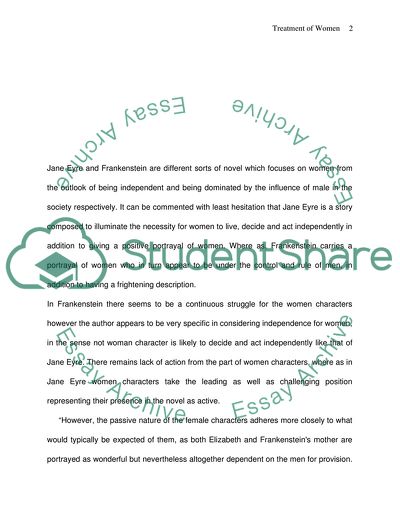Cite this document
(The Representation of Women in Jane Eyre and Frankenstein Book Report/Review - 2, n.d.)
The Representation of Women in Jane Eyre and Frankenstein Book Report/Review - 2. Retrieved from https://studentshare.org/literature/1540514-english-literature
The Representation of Women in Jane Eyre and Frankenstein Book Report/Review - 2. Retrieved from https://studentshare.org/literature/1540514-english-literature
(The Representation of Women in Jane Eyre and Frankenstein Book Report/Review - 2)
The Representation of Women in Jane Eyre and Frankenstein Book Report/Review - 2. https://studentshare.org/literature/1540514-english-literature.
The Representation of Women in Jane Eyre and Frankenstein Book Report/Review - 2. https://studentshare.org/literature/1540514-english-literature.
“The Representation of Women in Jane Eyre and Frankenstein Book Report/Review - 2”, n.d. https://studentshare.org/literature/1540514-english-literature.


